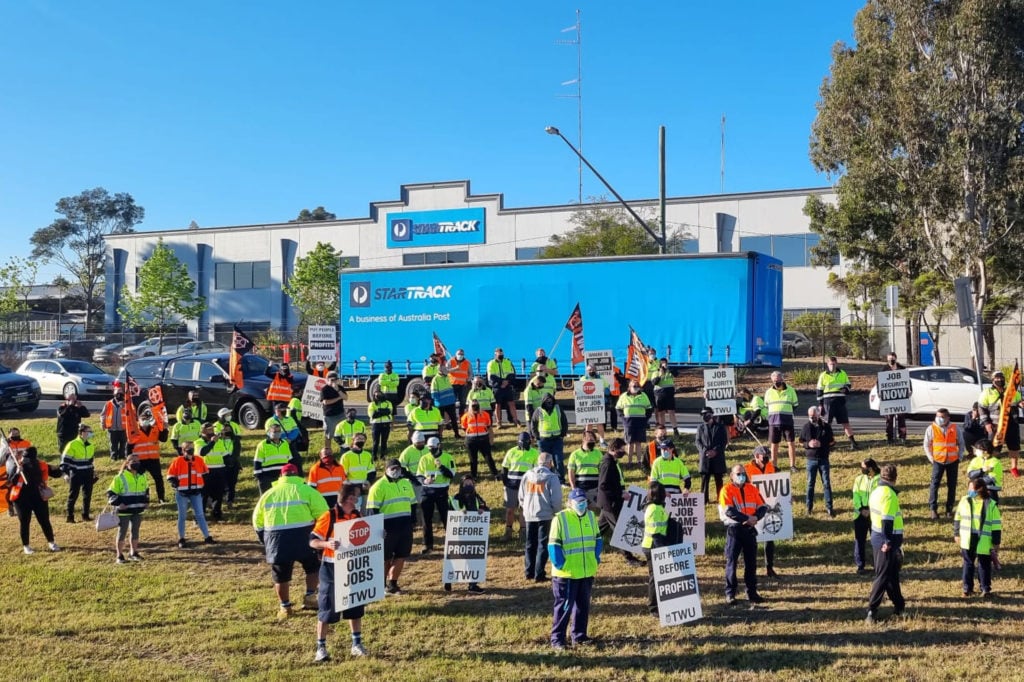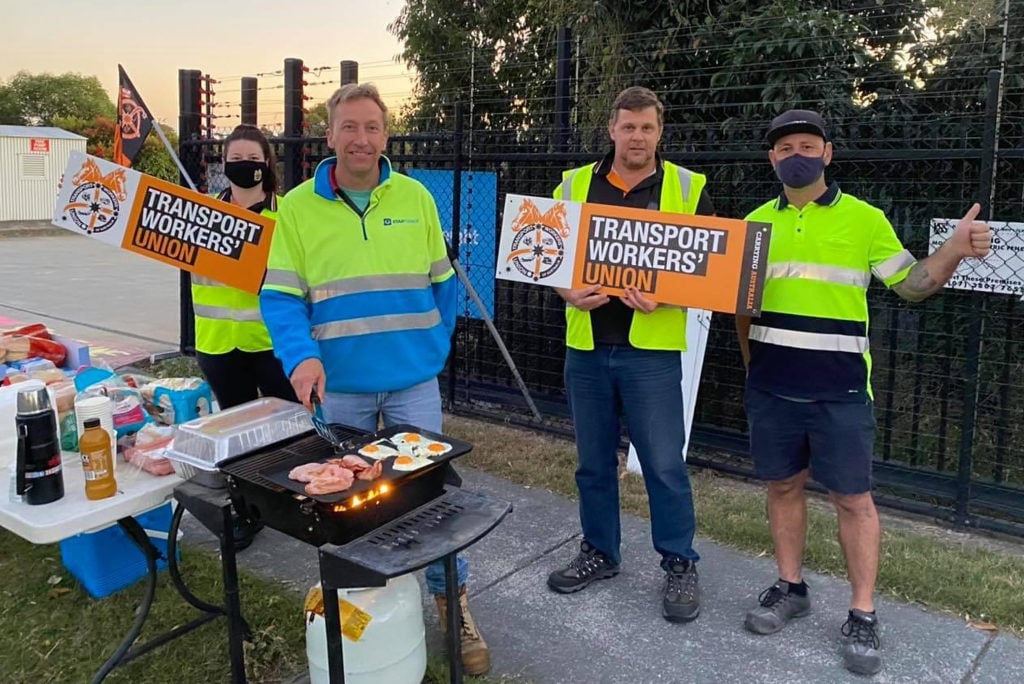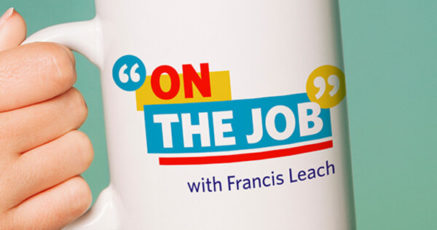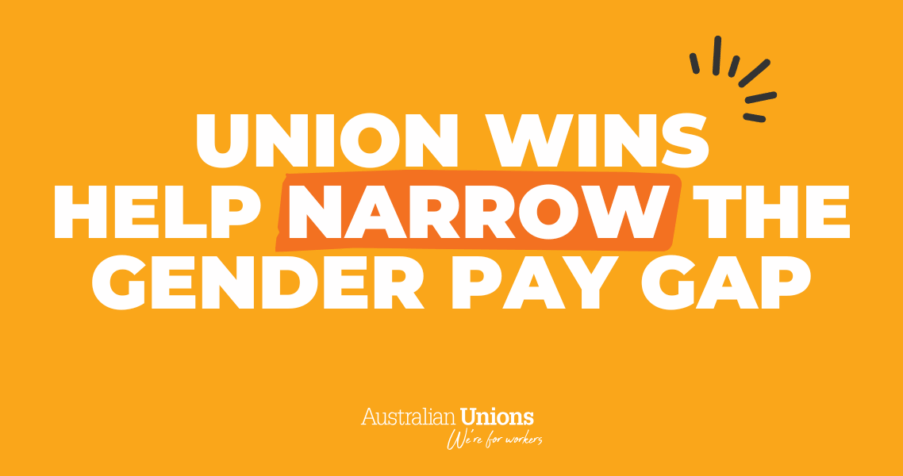Sending a parcel in the mail and expecting it to arrive on time has become a set and forget ritual for millions of Australians. As we approach Christmas, we could all be in for a rude shock as global supply chains buckle under the strain of a post-pandemic restart.
It’s not just customers who are feeling the pinch here. Those delivering parcels to Australian homes are finding that their job security and employment status is under threat despite their work being more vital than ever.
Despite big companies like UPS, StarTrack and FedEx making huge profits during COVD-19 lockdowns, these companies have joined a race to the bottom to drive workers’ pay and conditions into the ditch.

Transport workers have decided to take on the big logistics companies through a campaign run by the Transport Workers Union (TWU) to stop the “Amazon effect” infecting Australia’s delivery infrastructure and turning what is stable, vital, secure jobs into another branch of the gig economy.
In late October, workers at both StarTrack and FedEx held 24-hour strikes to push back against both companies refusal to bargain in good faith on a fair agreement for workers that guaranteed job security and conditions and put a halt to the creeping influence of America style anti-worker employment practices in the industry.
TWU National Secretary, Michael Kaine, said workers wouldn’t stand for the Amazon-style union-busting tactics that were becoming a feature of the way these companies were doing business.
Kaine said the Union believed it was on track for a fair agreement with FedEx before the company reversed its approach and rounded on its workforce.
“It’s a disgrace that FedEx took the extra time agreed to by workers to change tack and launched a fresh assault on their terms and conditions. These workers generated record multibillion-dollar profits for FedEx but the pay and conditions fall dangerously below those at their competitors like Toll and Linfox.”
On the Job spoke with TWU Assistant National Secretary Nick McIntosh who said that the companies that are currently acting with hostility to their workforces were the same organisations that made a fortune out of their hard work throughout the pandemic.

“As online shopping has gone ballistic these big companies that already had big footprints in the country like FedEx and Star Trek that, that have got that Australia Post infrastructure are making huge amounts of money and have really profited from the pandemic.”
“Job security is the key to all of this. The fact that that as the company’s profits have risen, as more and more work has come their way, rather than directly employing more people on permanent secure jobs, we’ve seen a big rise in in outside hire coming in.”
“It might be small fleet operators that bring with them a number of vans or vehicles and drivers are often paid the award wage – if they’re lucky, depending on whether or not they’re classified as employees. So the company tries to shove as much work to those people as they can get so that they can pay them low rates.”
McIntosh points out that there are huge safety concerns implicit in the companies aggressive push to outsource work in this way.
“We know that the transport industry is the most dangerous industry in the country. There are safety outcomes linked with how you perform that work”.
“People who are permanent employees that have had all the safety inductions and are paid a proper rate of pay by the hour, with well-maintained vehicles, are much less likely to injure themselves or someone else on the road versus people that are often paid poor rates of pay, are only paid for the hours they’re on the road, where the incentive is to get the job done as quickly as possible in order to make a living.”
With the huge boom in online shopping and deliveries, there is ample demand to ensure that those delivering our parcels are in secure, decent jobs.
Yet, companies like StarTrack and FedEx are pushing back against this aggressively due to what Nick McIntosh calls the “Amazon Effect”.
“Amazon have a massive distribution centre (DC) in Sydney and they’re building other DC’s around the country, and it’s really a matter of outsourcing that work.”
“As long as you’ve got a car and you can get out there and do it, they’ll say, yep, come out, he’s a certain amount of parcels you’ve got to go and deliver. So it really is gig economy work.”
“It’s just dump as many parcels in your car as you can get away with and try and do it in the time that Amazon has told you to do it.”
“Knowing the way Amazon operates around the world, it’s a union-busting model. If this is allowed to prosper in this country, then we’re going to end up with a race to the bottom ( for pay, job security and conditions) in transport and really no secure work in an industry that is making huge amounts of money.”
As Xmas looms, it is sure to be another hectic time for workers as parcel freight goes into overdrive again. Nick McIntosh said that the TWU’s focus is to get StarTrack and FedEx back to the table and sort out a decent deal for its workers. “It doesn’t have to be this way. You’ve just got to guarantee some job security. And you’ve got to reward these people in a reasonable way.”
Would you like to share your work story with On the Job? We’d love to hear from you. Email us.






SHARE:
Workers deliver a message – we won’t accept the Amazon Effect